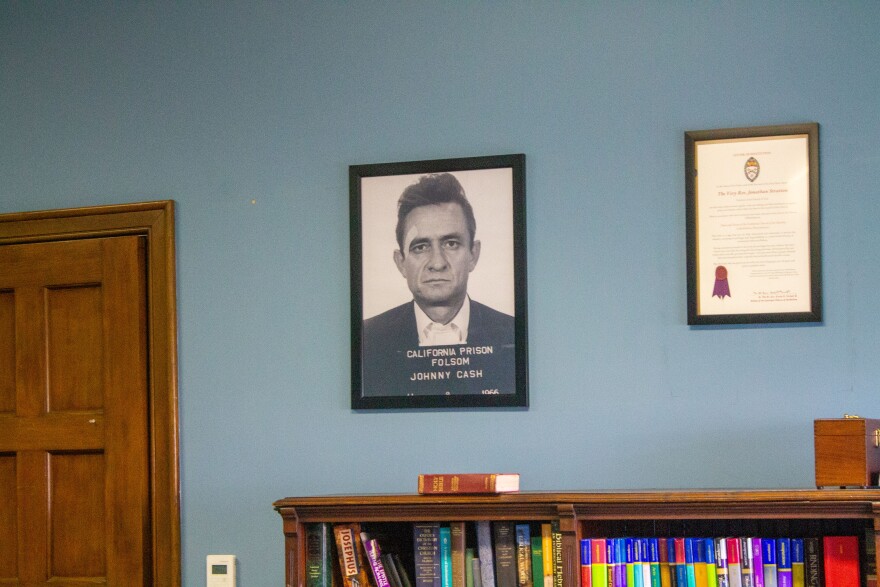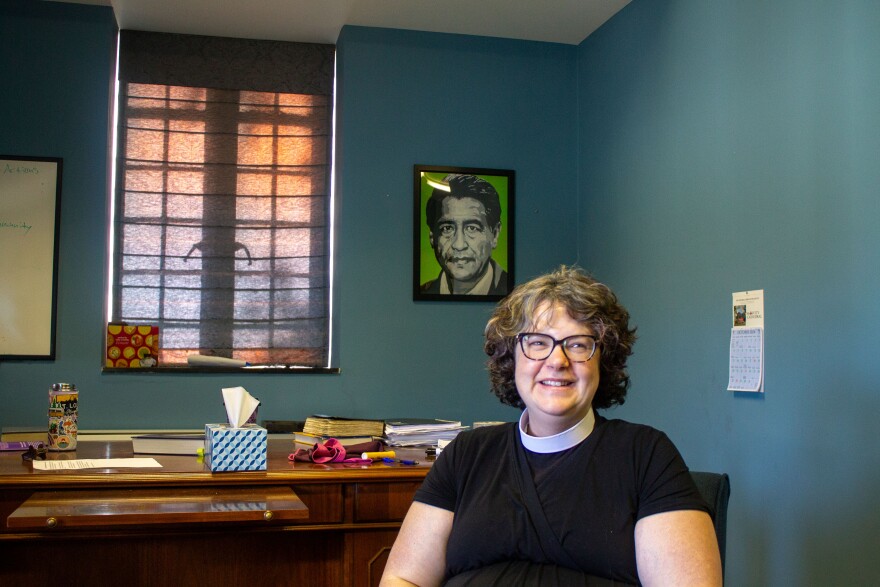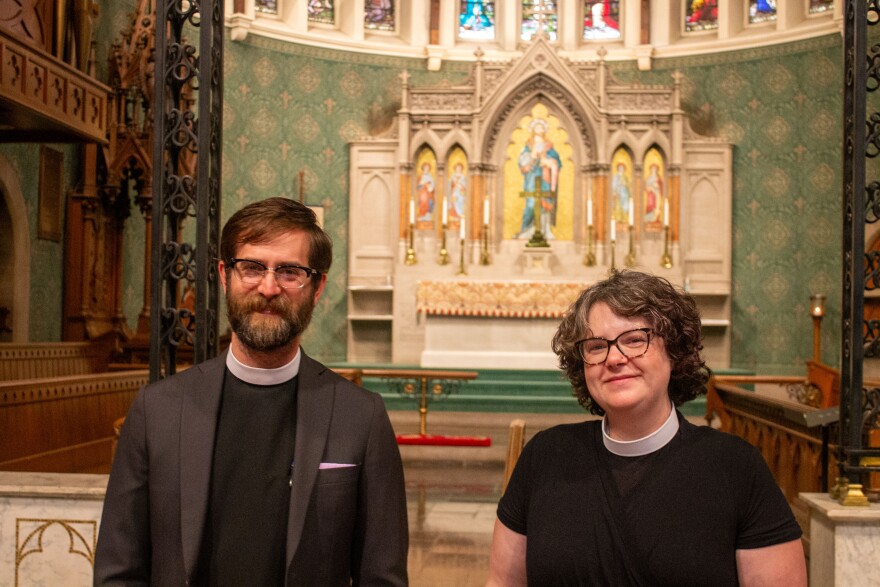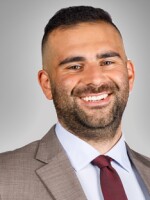BETHLEHEM, Pa.— At Cathedral Church of the Nativity in Bethlehem, The Very Rev. John Stratton across from his desk has a photo of rock 'n' roll singer Johnny Cash posing with a Folsom State Prison inmate placard.
"In many ways, he embodied the values of Christianity," Stratton said with a laugh. He also really likes Cash's music and its gospel roots.
Like Cash — who one author described as practicing only the "politics of empathy" — the Nativity Cathedral is not politically partisan.
“As Christians, we are guided by the Gospel of Jesus Christ, the radical politics of love of neighbor and resistance to empire that is often in tension with partisan politics on both sides of the aisle," Stratton said.

"We certainly can, and do, call out public officials when their words or actions harm people’s lives, especially the most vulnerable in our communities."
On election day, the cathedral will be a polling place, opening at 7 a.m. Nov. 5.
The church also will open its sanctuary and make clergy staff available for those who want to pray before they vote.
Or pray, vote, then pray again.
"The more prayers the better," Stratton said.
High anxiety
Stratton, as well as his colleague at the Nativity Cathedral, the Rev. Maryann Sturges, said they've both heard and felt a lot of anxiety from their congregations leading up to the election.
"We have people, a lot of people, who have high anxiety about the election," Sturges said. "Especially people who are part of marginalized communities."

"I know we have people in our congregations who are transgender, who are immigrants, who are whose very ability to be in this country could be threatened."
Different parishioners have different coping mechanisms for such fear, Sturges said.
"So I think I've seen a lot of anxiety, a lot of fatigue," she said. "And some people are just kind of trying to ignore the election. That's what I've seen a lot of people do, as well."
Sturges described the plans for election day prayer to be "meditative" — but not preachy.
"There's not going to be a sermon, there's not going to be any kind of teaching, but it's a chance for us to reflect on our fears, on our reliance on God," she said.
"We're also going to have music, and we're gonna have a labyrinth people can walk around — just really an opportunity to kind of relieve some of the anxiety that a lot of people may be feeling about the election.
"And so that's the goal of this service, is to really be a place where we can bring people into to find some solace on election day."
Sanctuary
On a recent visit inside the main hall of the cathedral, a dim light flowed through colorful, pristine stained-glass windows.
The feeling of peace in the space — even to a nonreligious person — was undeniable.
"Jesus was never on the right or the left."The Very Rev. Jon Stratton
From the perspective of both pastors, political issues do sometimes make their way into that sanctuary — as a symptom of the world and country we live in, but that's not the point.
"It's a space where the life, death and resurrection of Jesus Christ, rather than tired right-left binaries, should inform how we live, vote, and build a more beloved community," Stratton said.
Asked whether the church, which is Episcopal, would be considered socially progressive, Stratton responded:
"The Episcopal church is on the progressive spectrum, overall," he said. "So women's ordination, we fully support LGBTQIA+ rights, we totally support reproductive rights.

"Again, we totally support those, but there's a variety within the Episcopal Church. People are on all different sides of the political spectrum, so it's hard to say, like, 'Is the Episcopal Church progressive, or is it? Is it conservative?'
"I don't even like to use those, words, actually. I think they can be somewhat divisive and also kind of put people in boxes."
Perspective
A theological perspective that kept coming up was that Jesus, from the perspective of the Episcopal church — was "king" or "Lord" — and that, to his followers, His message takes priority above any politician.
"Jesus was never on the right or the left," Stratton said. "He was always at the bottom, with people who were struggling, people who had issues, people who had been left out, poor folks, folks who had been struggling with illnesses.
"Jesus found himself at the bottom with those people, and that was his entire life."
"We have no control over who's going to win, and I don't think that we should, as a church, be endorsing one candidate."The Rev. Maryann Sturges
Sturges shared similar thoughts.
"We have no control over who's going to win, and I don't think that we should, as a church, be endorsing one candidate," she said.
"Because it doesn't allow us to have that space to then call that candidate out when they don't do the things that Jesus would have them do."
Stratton summarized: "Our primary identity is Christian, or as followers of Jesus, and I think that's one of the issues with politics right now: that political affiliation has become people's primary identity."
More information is available on the Cathedral Church of the Nativity's website.


